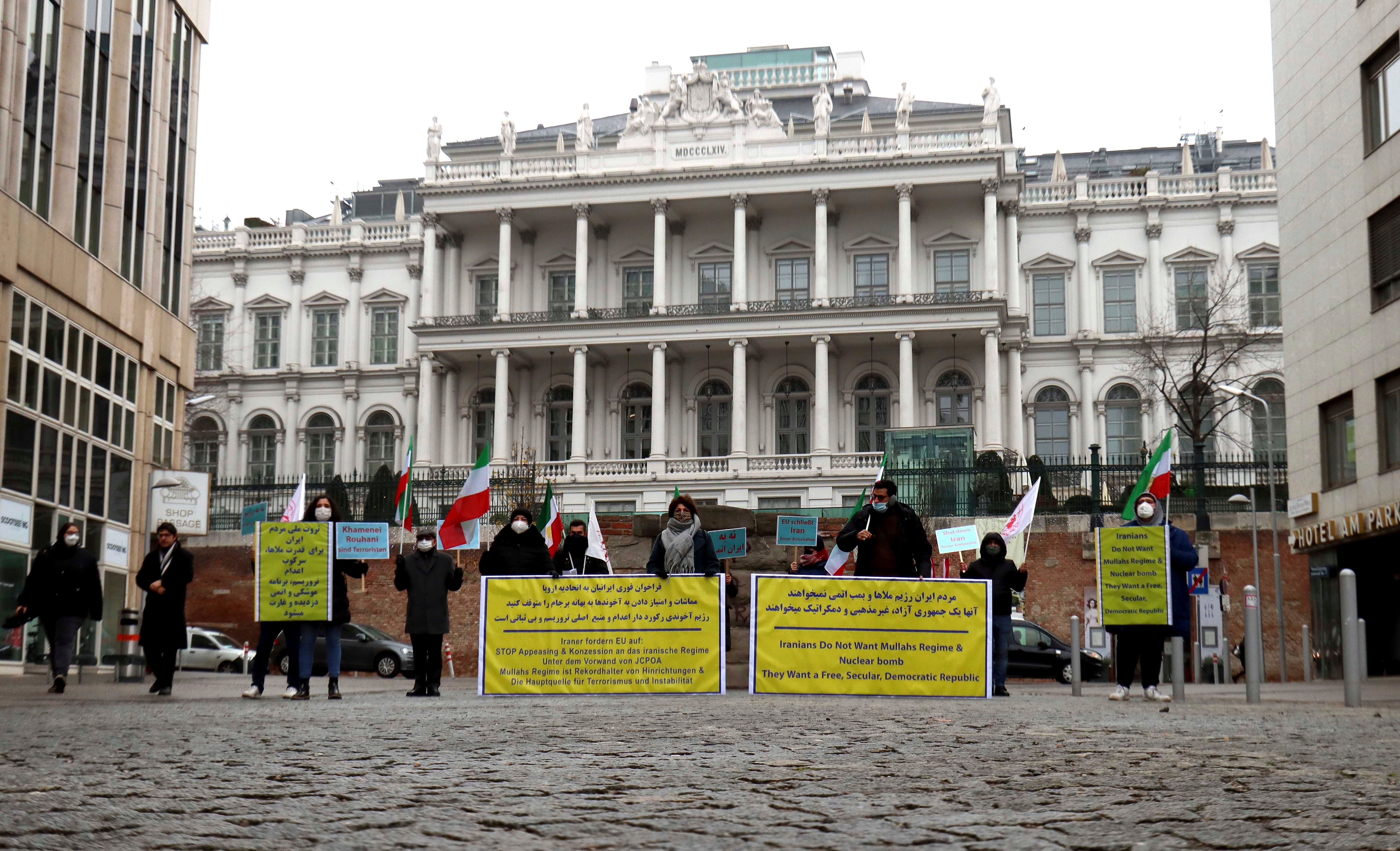Iran nuclear deal members urge Tehran return to compliance
World powers that are part of a landmark 2015 nuclear deal with Iran are urging Tehran to roll back violations of the accord and return to full compliance during a virtual meeting in Vienna

Your support helps us to tell the story
From reproductive rights to climate change to Big Tech, The Independent is on the ground when the story is developing. Whether it's investigating the financials of Elon Musk's pro-Trump PAC or producing our latest documentary, 'The A Word', which shines a light on the American women fighting for reproductive rights, we know how important it is to parse out the facts from the messaging.
At such a critical moment in US history, we need reporters on the ground. Your donation allows us to keep sending journalists to speak to both sides of the story.
The Independent is trusted by Americans across the entire political spectrum. And unlike many other quality news outlets, we choose not to lock Americans out of our reporting and analysis with paywalls. We believe quality journalism should be available to everyone, paid for by those who can afford it.
Your support makes all the difference.World powers that are part of a landmark 2015 nuclear deal with Iran urged Tehran on Wednesday to roll back violations of the accord and return to full compliance during a virtual meeting in Vienna, a German official said.
The meeting comes as the signatories to the agreement — Germany, France, Britain, China and Russia — continue to try and keep it from collapsing after the unilateral withdrawal of the United States in 2018.
The three European powers have expressed hope that with the change of administrations in Washington, the U.S. could be brought back into the deal, whose goal is to prevent Iran from developing a nuclear bomb — something Tehran insists it doesn't want to do.
President-elect Joe Biden has said he hopes to return the U.S. to the deal, which was negotiated while he was vice president.
But complicating that, Iran is now in violation of most major restrictions set out in the agreement, including the amount of enriched uranium it is allowed to stockpile and the purity to which it is allowed to enrich uranium.
German Foreign Ministry spokeswoman Maria Adebahr said Wednesday's meeting of political directors and deputy foreign ministers would assess implementation of the nuclear accord, and that the European countries would demand Iran return to full compliance.
Iran has said it is no longer obliged to follow the restrictions, arguing that the U.S. first violated the agreement, known as the Joint Comprehensive Plan or Action, or JCPOA, when President Donald Trump pulled out of the deal and imposed crippling economic sanctions on Iran.
The deal promises Iran economic incentives in exchange for curbs on its nuclear program, but with the reinstatement of American sanctions, the other nations have been struggling to provide Iran the assistance it seeks.
Despite Iran's violations, the International Atomic Energy Agency has reported that Tehran continues to give inspectors full access to its nuclear sites — a key reason the JCPOA member nations say it is worth preserving.
Wednesday's meeting was meant to lay the groundwork for new ministerial-level talks.
___ Frank Jordans contributed to this story.